Sixteen years after Angela Merkel became Chancellor, Germany will have a new leader next week: Olaf Scholz. We might expect Scholz to enact a few domestic reforms but do little to change the country’s foreign policy — as is the tradition for a new German government. But this time, the consensus behind the country’s foreign policy has broken down. Relations with Russia are at a delicate phase and things might be about to change rather a lot.
Scholz is from the centre-left Social Democratic party and both of his coalition partners, the Greens and the liberal FDP, are pushing for reform. They disagree with him over the Nord Stream 2 gas pipeline to Russia, which they think is symbolic of Germany’s subservient relationship to Moscow. They abhor Angela Merkel’s cosy relations with President Xi Jinping. Nor are they too keen on the bad-boy governments of Poland and Hungary, whom Merkel tried to protect from EU sanctions over their failure to adhere to European law. Germany’s new coalition says it will not support countries that break the law.
Look at the three party manifestos, and you will not find much overlap between their positions on foreign, economic or social policy. What defines their joint political project is the desire to modernise. Germany’s industrial production is trapped in the analogue era (four out of ten companies still use fax machines). The new coalition will probably make some progress when it comes to pushing back German corporatism, reducing its over-reliance on fossil fuels and industrial exports. But doing so will mean changing foreign policy too, because German foreign policy has for so long been all about maximising industrial exports.
So out goes Heiko Maas, foreign minister for the past three years. He is a Social Democrat, a senior minister in two consecutive grand coalitions and a keen advocate of the Nord Stream 2 pipeline. His successor will be Annalena Baerbock, co-leader of the Greens, who is a very different beast.
She and her party are opposed to Nord Stream 2, which means the issue is only likely to become more contentious in the weeks to come. After five years and £8 billion spent, the 760-mile pipeline is complete, but it has hit a last-minute legal hurdle from German regulators. Extraordinary amounts of money are riding on its completion (or suspension) and Moscow is likely to do everything in its power to complete the deal.
The Social Democrats are perhaps Russia’s most important strategic partner in Europe. Former Chancellor Gerhard Schröder is Vladimir Putin’s chief international lobbyist: chairman of the Nord Stream 2 company, which is fully owned by the Russian corporation Gazprom. Germany’s President, Frank-Walter Steinmeier, used to be Schröder’s right-hand man during his years as Chancellor. Earlier this year Steinmeier defended the pipeline on the grounds that Germany owed a historic (i.e. war) debt to Russia; atonement for what he calls ‘times of terrible bloodshed’.
Through Gazprom, Putin created a public foundation in the Social Democrat-led state of Mecklenburg-Vorpommern, in north-east Germany. Manuela Schwesig, the state premier and a former deputy party leader, is one of the pipeline’s strongest defenders. Nord Stream 2 is very much a party project. And this is precisely the relationship being challenged by the Greens.
Scholz himself does not seem to be part of Putin’s circle: the Russians (and Schröder) didn’t bother with him because they thought he had no chance of winning. But the rest of his party has closer ties. The success of Scholz’s coalition will depend to a large extent on whether he can distance himself from his party comrades and define a new relationship with Russia.
It may be difficult to stop Nord Stream 2 at this stage, given that the remaining section of the pipeline was completed off the German coast three months ago. But the gas won’t flow until there is regulatory approval from Germany and the EU. This might be a big stumbling block. The Greens are betting on regulatory obstruction. Robert Habeck, the other leader of the Greens, will hold the powerful post of economic minister. He will oversee the regulatory approval process, and it’s unlikely he will push for a ‘yes’.
The European Commission, for its part, is in no rush to grant approval. Under European law, pipelines have to be open to competition once they enter the territory of the EU. Gazprom argues that the law does not apply because the Nord Stream 2 project started before that law came into force. In this regulatory and legal dispute, it will make a difference whether the German economics minister lobbies on behalf of Russia (as Peter Altmaier, the outgoing minister, did under Merkel) or whether Habeck does the opposite.
Then there’s Beijing. Merkel was quite cosy with China: under her chancellorship Germany became the country’s biggest trade partner in Europe. But the Greens were more critical of Xi’s regime — so much so that some Green MEPs (like some British MPs) are currently subject to sanctions. For as long as that situation persists, it will be hard for Scholz to keep close relations. He may try to coordinate his China policy more closely with Washington. (One of the few things we know about Scholz is that he is an Atlanticist. There are not that many left in German politics.)
When it comes to relations with Nato, Scholz will probably prevail over the Greens. They want to quit the US nuclear umbrella and ditch the Nato target that asks each member state to spend 2 per cent of its economic output on defence. Scholz will not accept the former, but may compromise on the latter. Money is, after all, scarce.
What about relations with Britain? Like most Germans, Scholz does not understand Brexit. Habeck, however, whose expanded economy ministry will give him authority over climate and energy policy, is an Anglophile and was a translator of English poetry before he became a politician. He will have a better understanding of the UK than the average German politician, as will Christian Lindner, chairman of the FDP and the incoming finance minister. Both men will become deputy chancellors and the biggest potential for co-operation between the UK and Germany will come in their two respective portfolios of economics and finance.
Germany’s modernisation project will require a huge amount of financial innovation that is unlikely to be provided by the fusty German savings banks. Germany will need the deep capital markets of the City of London, especially venture capital. Green investment is not primarily a public-sector project.
There are more ways for Scholz’s coalition to fail than to succeed. He won an improbable election victory and managed to form his coalition quickly, but is relatively untested and may yet falter. Germans seem to like him but they don’t really know him yet. There is reason to be cautious. When he was mayor of Hamburg, he failed to stand up to Warburg Bank when it ran a scheme — later declared fraudulent by Germany’s federal court of justice — that deprived the city’s tax authorities of revenues.
After Scholz became Merkel’s finance minister in 2018, he had been told that not all was well with Wirecard, the now-bankrupt financial service firm, but he did not act until it was too late. If he does not stand up to a local bank, can we really expect him to stand up to Putin if he threatens to cut off gas supplies? Nord Stream 2 may be an early test of his resolve.
Another potential downfall of his coalition is money: how on earth will the government finance this great German modernisation project? The Social Democrats want to increase social spending. The FDP, who support the free market, reject higher taxes and promise a speedy return to the rules that stop governments from issuing net debt. At the same time, the coalition wants to spend €50 billion a year to accelerate the transition to green energy and modernise the outdated public infrastructure. Something will have to give.
Merkel became reliant on Russia after she ordered Germany’s exit from nuclear energy in 2011. She had no back-up plan. This new coalition has one — renewable energy — but it is contingent on funding that has yet to be agreed.
A third danger to Scholz’s coalition would come if Merkel’s CDU somehow recovers from its disastrous election result. Armin Laschet, the CDU chairman, is stepping down and his successor will be elected later this month. It is a race between three candidates who represent three different directions. Friedrich Merz, the national conservative; Norbert Röttgen, the Atlanticist; and Helge Braun, Merkel’s right-hand man, who stands for continuity. The polls have Merz in front among CDU members.
A revived CDU would mean that the Greens and the FDP could dump Scholz and switch coalitions at any time: during a government crisis, for example. So he will have to keep both of his coalition partners happy, which may mean risking a confrontation with his own party.
In German politics, it is usually safe to bet that the status quo will continue. But in this case, I would not place such a bet. Either the coalition succeeds — which can only happen if Germany changes foreign policy — or it will fail. Whichever happens, we won’t get more of the same.
Got something to add? Join the discussion and comment below.
Get 10 issues for just $10
Subscribe to The Spectator Australia today for the next 10 magazine issues, plus full online access, for just $10.
You might disagree with half of it, but you’ll enjoy reading all of it. Try your first month for free, then just $2 a week for the remainder of your first year.


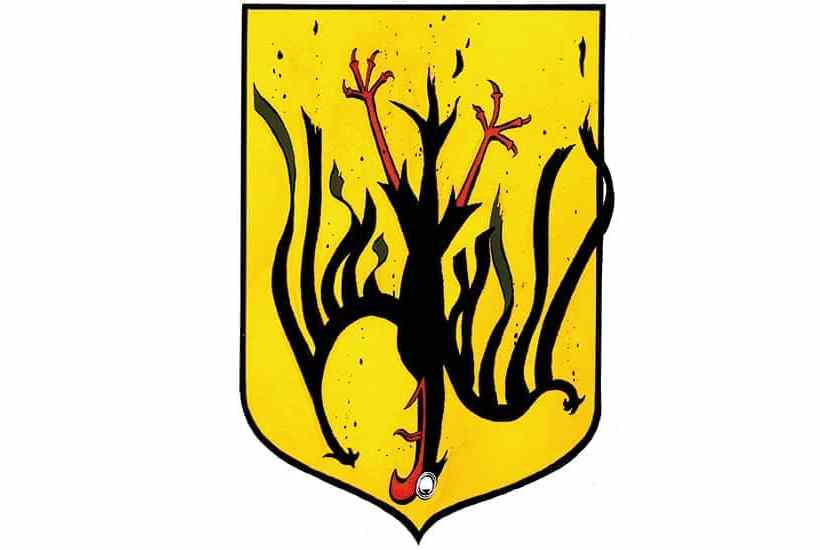
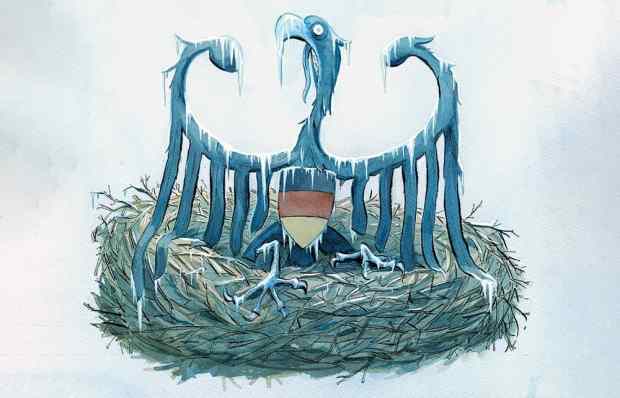
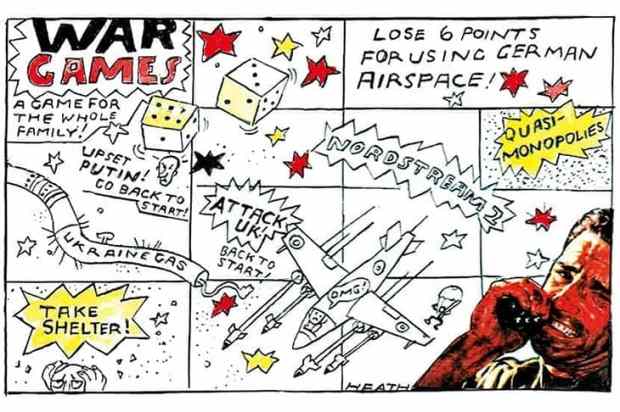
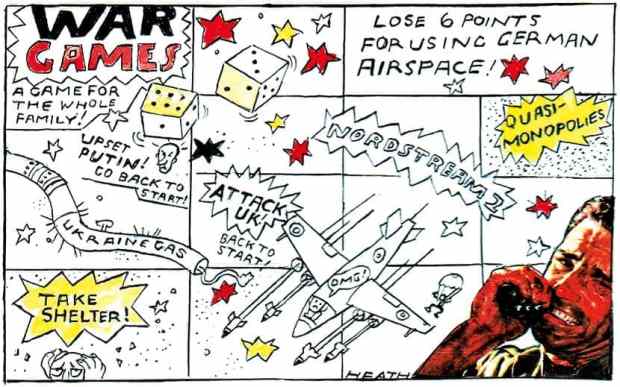
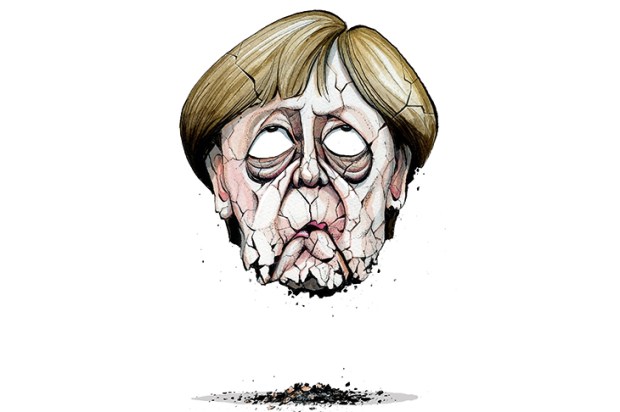








Comments
Don't miss out
Join the conversation with other Spectator Australia readers. Subscribe to leave a comment.
SUBSCRIBEAlready a subscriber? Log in